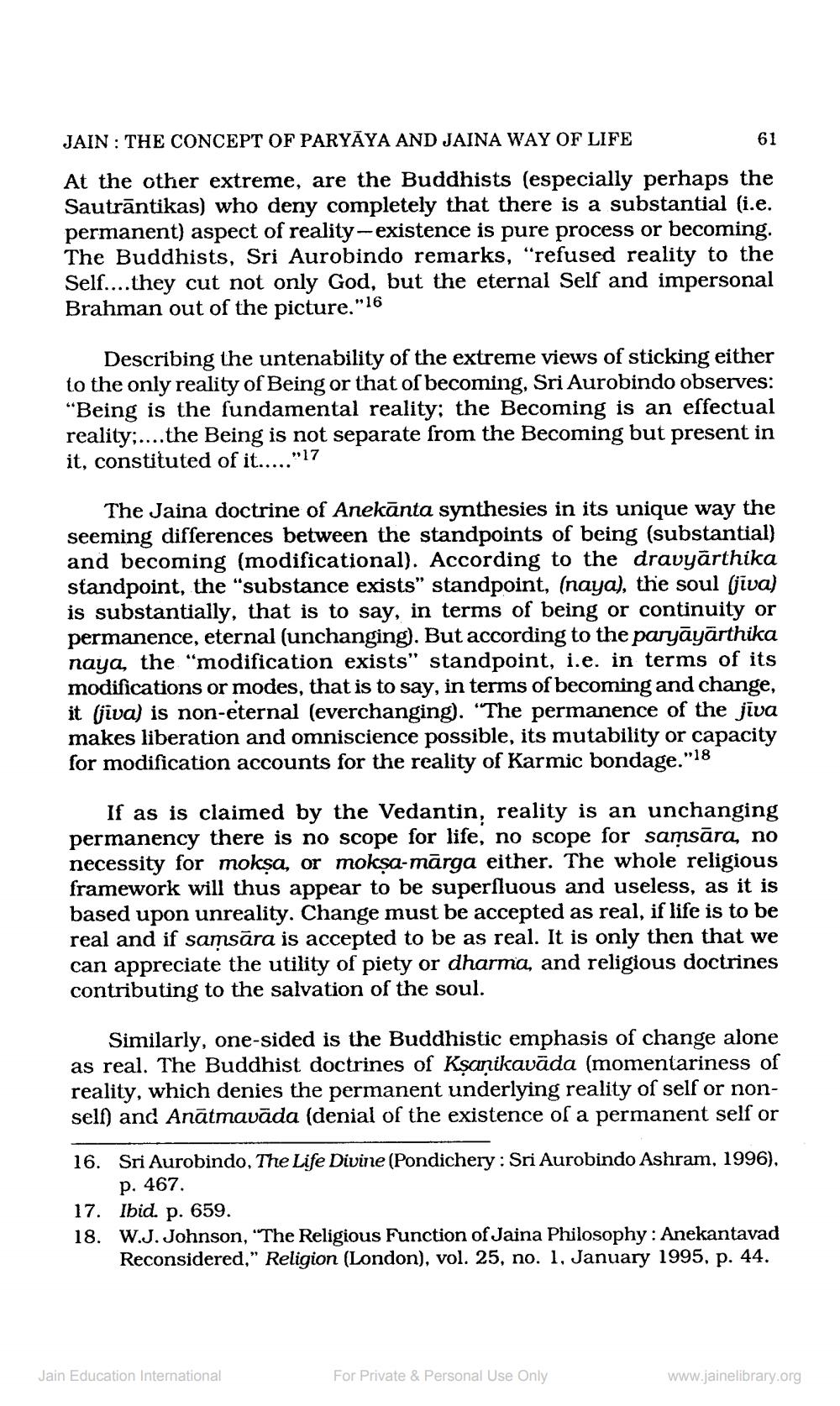Book Title: Jain Journal 2001 10 Author(s): Jain Bhawan Publication Publisher: Jain Bhawan Publication View full book textPage 7
________________ JAIN : THE CONCEPT OF PARYAYA AND JAINA WAY OF LIFE 61 At the other extreme, are the Buddhists (especially perhaps the Sautrāntikas) who deny completely that there is a substantial (i.e. permanent) aspect of reality-existence is pure process or becoming. The Buddhists, Sri Aurobindo remarks, "refused reality to the Self....they cut not only God, but the eternal Self and impersonal Brahman out of the picture."16 Describing the untenability of the extreme views of sticking either to the only reality of Being or that of becoming, Sri Aurobindo observes: "Being is the fundamental reality; the Becoming is an effectual reality;.... the Being is not separate from the Becoming but present in it, constituted of it....."17 The Jaina doctrine of Anekānta synthesies in its unique way the seeming differences between the standpoints of being (substantial) and becoming (modificational). According to the dravyārthika standpoint, the "substance exists” standpoint, (naya), the soul (jiva) is substantially, that is to say, in terms of being or continuity or permanence, eternal (unchanging). But according to the paryāyārthika naya, the "modification exists" standpoint, i.e. in terms of its modifications or modes, that is to say, in terms of becoming and change, it (jiva) is non-eternal (everchanging). "The permanence of the jīva makes liberation and omniscience possible, its mutability or capacity for modification accounts for the reality of Karmic bondage."18 If as is claimed by the Vedantin, reality is an unchanging permanency there is no scope for life, no scope for samsāra, no necessity for mokşa, or mokşa-mārga either. The whole religious framework will thus appear to be superfluous and useless, as it is based upon unreality. Change must be accepted as real, if life is to be real and if samsāra is accepted to be as real. It is only then that we can appreciate the utility of piety or dharma, and religious doctrines contributing to the salvation of the soul. Similarly, one-sided is the Buddhistic emphasis of change alone as real. The Buddhist doctrines of Kṣaṇikavāda (momentariness of reality, which denies the permanent underlying reality of self or nonself) and Anātmavāda (denial of the existence of a permanent self or DAG 16. Sri Aurobindo, The Life Divine (Pondichery : Sri Aurobindo Ashram, 1996), p. 467 17. Ibid. p. 659. 18. W.J. Johnson, "The Religious Function of Jaina Philosophy: Anekantavad Reconsidered," Religion (London), vol. 25, no. 1, January 1995, p. 44. Jain Education International For Private & Personal Use Only www.jainelibrary.orgPage Navigation
1 ... 5 6 7 8 9 10 11 12 13 14 15 16 17 18 19 20 21 22 23 24 25 26 27 28 29 30 31 32 33 34 35 36 37 38 39 40 41 42 43 44 45 46 47 48 49
